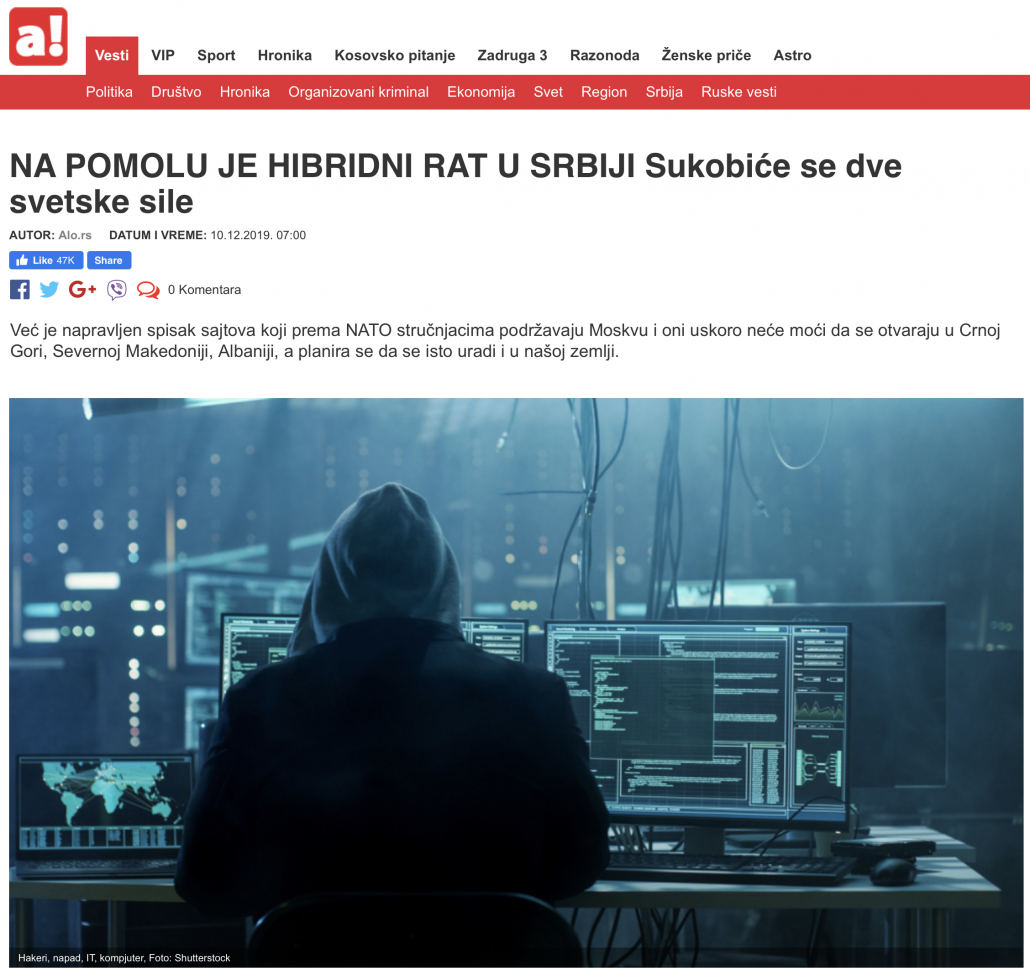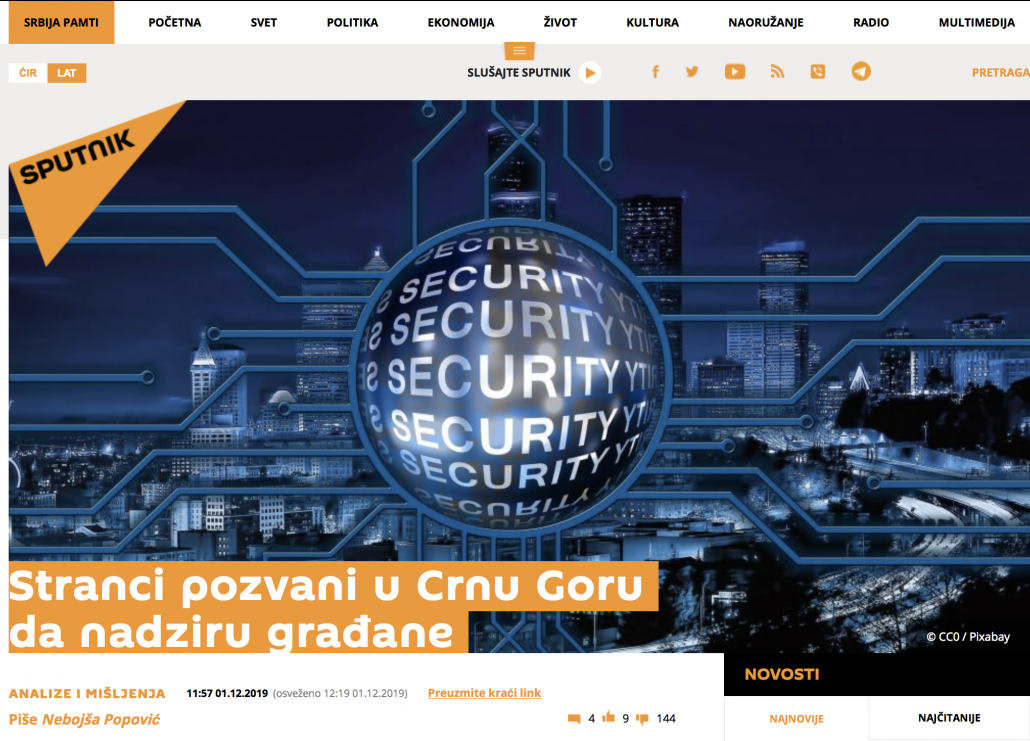The arrival of the NATO counter-hybrid support team in Montenegro drew a lot of attention, particularly of the media inclined to sensationalistic narratives.
Even though the goal of the experts’ visit to our country is to improve our services’ defense against cyber-attacks, as confirmed by the Alliance, some media wrote about the visit in a them-characteristic manner.
Thus, the Borba portal reported on November 21 that the NATO special team had arrived in our country to control the work of the Internet portals, primarily the work of Borba, IN4S, and Sputnik. The text further explains that the team uses modern equipment that serves to hacker breaches and shut down websites and portals when estimated as necessary.
Even Bosko Vukicevic, a member of the movement Sloboda narodu (Eng. Freedom to people), wrote in his column for the same portal: I am not surprised at all by the information that the American counter-hybrid support team, which resides these days in Podgorica, assumes certain responsibilities from the Montenegrin ANB (the National Security Agency). Above all, it is about responsibilities related to the field of monitoring of anti-regime and anti-NATO activists on social media, then free portals and the media, as well as the taking of certain measures against them.


The statement of Marko Milacic for Sputnik Serbia, highlighting that the NATO team has come to our country to spy on citizens (December 1), reads in the same manner.
The mentioned media reporting is followed by a text of the Serbian portal Alo on December 10, headlined: HYBRID WAR IN SERBIA IN THE OFFING – Two world powers will collide. The text suggests that the counter-hybrid team from Montenegro plans to spread its actions on the whole Balkan region, aiming at shutting down pro-Russian media portals, and, as stated, the list has been already formed. Such portals will not be able to be launched again in Montenegro, North Macedonia, and Albania, and the plan is to do the same in Serbia.
The issue with such and similar claims is that they are not based on credible proofs, and the editorials often refer to well-informed diplomacy sources and internal services’ findings as to the sources of information. Although the credibility of such claims and information is easy to establish, some levels of society still can believe it, which can result in long-term harmful consequences.
DFC Magazine Issue 15

